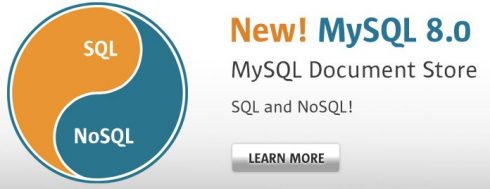
Oracle has announced a major release of its open-source relational database management system MySQL. MySQL 8.0 delivers a number of improvements designed for database administrators and developers building the next generation of web, embedded, mobile, and cloud aps.
“MySQL is the most trusted and widely used open source database platform in use today. 10 out of the top 10 most popular and highly-trafficked websites in the world rely on MySQL,” according to the platform’s website. “MySQL powers the most demanding Web, E-commerce, SaaS and Online Transaction Processing (OLTP) applications. It is a fully integrated transaction-safe, ACID compliant database with full commit, rollback, crash recovery and row level locking capabilities.”
Highlights of the release include the MySQL document store, transactional data dictionary, SQL roles, default to UTF8MB4, common table experiences and window functions.
The new document store is built for developers building traditional SQL relational apps and NoSQL, schema-free document database apps. According to Oracle, it eliminates the need for an addition NoSQL document database. “The MySQL Document Store provides multi-document transaction support and full ACID compliance for schema-less JSON documents,” the company wrote in a post.
New window functions are delivered as SQL window foundations and include SQL aggregate functions and specialized windows functions.
The transactional data dictionary is meant to ensure atomic, crash safe DDL. The purpose of SQL roles is to simplify user access right management.
In addition, MySQL 8.0 aims to deliver requested developer features for SQL, JSON and GIS areas. These features descending indexes, character sets, histograms, extended syntax, new functions, geography support, and spatial reference systems. According to Oracle, UTF8MB4 is now the default character set because developers have requested the ability to store Emojis.
Other features include OpenSSL improvements, new default authentication, performance improvements, and invisible indexes.






